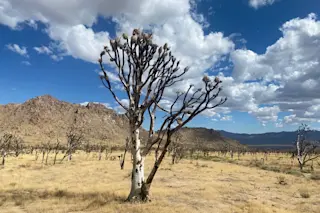MYTH: Most energy in the United States comes from solar, nuclear, and hydroelectric generation.
FACT: Seventy percent of our electricity is produced by burning coal and other fossil fuels, sources linked to global warming.
MYTH: Household and industrial chemicals are routinely tested and approved for safe use by the U.S. Environmental Protection Agency.
FACT: Federal officials do not test pesticides or household products for safety. They rely on producers to do so.
MYTH: The solar-energy market has plateaued.
FACT: Worldwide sales of solar cells increased 11 percent a year from 1990 to 1996, then jumped by 43 percent in 1997 and by another 28 percent in 1998. Sales of coal and oil have grown by slightly more than 1 percent a year since 1990.
MYTH: Most oil pollution comes from tankers that run aground or ships that wash out their holds at sea.
FACT: More than twice as much oil gets into the environment each year because of sloppy activities involving automobiles and boats. At least 200 million gallons of oil are dumped each year in the U.S. by people who change their own automobile engine oil. Overfilling auto gas tanks also contributes to the mess, as do spills when refilling outboard-motor tanks. However, tens of thousands of leaky auto engines whizzing over already polluted urban environments can’t compare with the damage done to a pristine environment by a single oil tanker such as the Exxon Valdez, which spilled 10 million gallons of oil into Prince William Sound in Alaska in 1989.
MYTH: Our national forests are protected from logging, mining, and drilling for oil.
FACT: Fifty-two percent of national forests are logged, mined, and crisscrossed by more than 373,000 miles of roads, enough to circle Earth 14 times. Just 18 percent of national forest land is permanently protected wilderness, and much of that is thin soil over rock where trees rarely grow.
MYTH: Plastic six-pack rings do not break down in the environment and can trap marine animals.
FACT: The rings are designed to disintegrate in sunlight, but the process can take ten years. Therefore, the rings should be snipped, recycled, or avoided altogether. Surveys have shown that the rings can strangle birds and fish, but the worst culprit is abandoned plastic fishing line, responsible for 37 percent of marine entanglements.
MYTH: Destruction of tropical rain forests will cause Earth’s atmosphere to run out of oxygen.
FACT: Oxygen makes up almost 21 percent of atmospheric gases. Burning all the tropical forests in the world would decrease the proportion of oxygen by four-hundredths of 1 percent. Destruction of tropical rain forests, however, would significantly increase the concentration of carbon dioxide—the most important greenhouse gas—in the atmosphere by 26 percent.
MYTH: Government agencies test bottled water for safety and purity.
FACT: Bottled water is not tested by federal officials.
MYTH: Aerosol spray cans are the leading source of ozone-destroying chlorofluorocarbons (CFCs).
FACT: CFCs were banned from aerosol cans in 1978. They are still found, however, in many air conditioners and refrigerators.
MYTH: Spent fuel rods from nuclear power plants—which will remain radioactive for millions of years—are safely stored in a deep underground facility in the west.
FACT: No such long-term storage facility exists. All fuel rods are stored temporarily at the nation’s 103 active nuclear plants. Another 12 plants have been shut down, but the spent rods are still stored at the plants.










